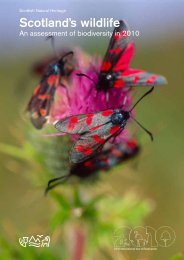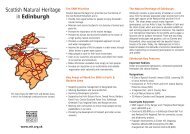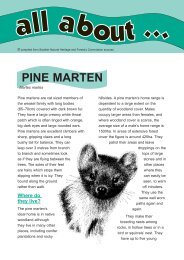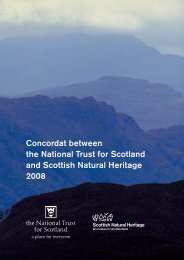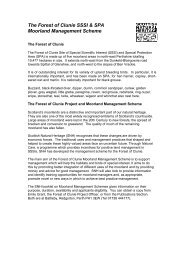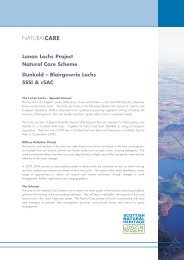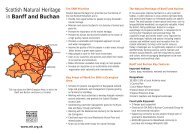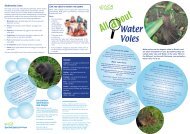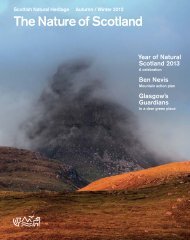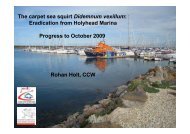Local Nature Reserve Management Planning Guidance
Local Nature Reserve Management Planning Guidance
Local Nature Reserve Management Planning Guidance
Create successful ePaper yourself
Turn your PDF publications into a flip-book with our unique Google optimized e-Paper software.
1. The Process<br />
<strong>Local</strong> <strong>Nature</strong> <strong>Reserve</strong>s are valuable places because they combine protection of the<br />
natural heritage with opportunities for people to enjoy, learn about and experience<br />
nature close to their homes. SNH expects partners to identify sites which are, or<br />
could become, LNRs as part of the process of developing and maintaining:<br />
• An open space audit or greenspace strategy,<br />
and/or<br />
• A <strong>Local</strong> <strong>Nature</strong> Conservation Sites system.<br />
<strong>Management</strong> planning is a process, the output of which will be a ‘fit-for-purpose’<br />
management plan. Plans should always be as concise as possible, although<br />
naturally a large, complex site will have a lengthier plan than a small site.<br />
It is important that the process is inclusive, with stakeholders being given the chance<br />
to input into the plan. In many ways, the process can be as important as the plan<br />
itself, and can be a good way of engaging the community.<br />
SNH recommends the engagement of stakeholders during the management<br />
planning process. This can usually be achieved through the LNR<br />
management group, which will be made up of representative stakeholders.<br />
If your LNR does not have a management group, we would strongly advise<br />
setting one up.<br />
Further consultation can be undertaken if necessary. This can be a good way of<br />
engaging the community and enthusing people about the LNR. You could<br />
consider a community consultation event or invite comments on a draft plan on<br />
display in the local library. Remember to keep these consultations focused, and<br />
to be clear and specific about what questions you are asking.<br />
Remember that, before any wider consultation, you must have the support<br />
of your organisation for the planning process, as well as a commitment to<br />
implement it.<br />
4



